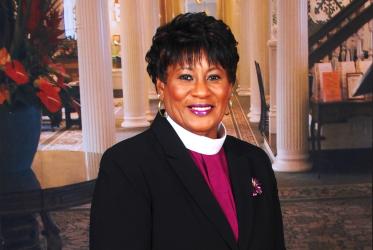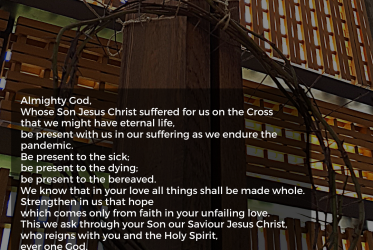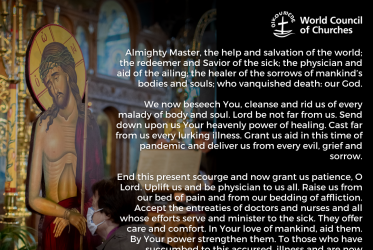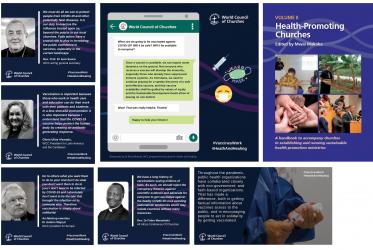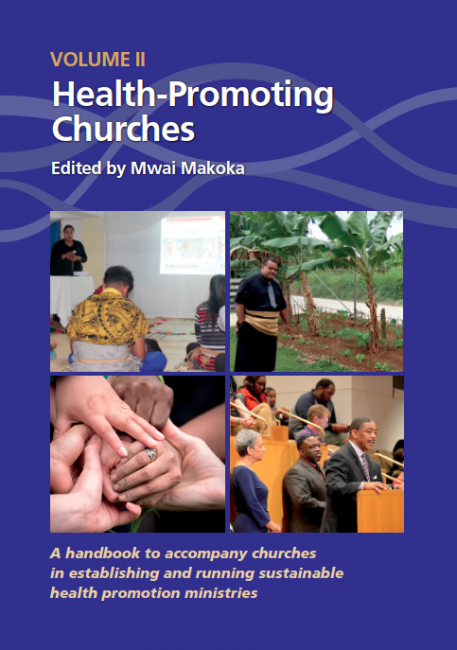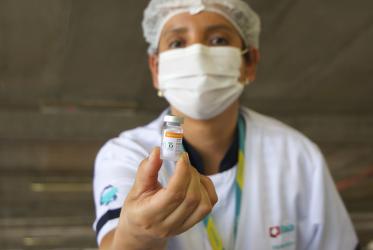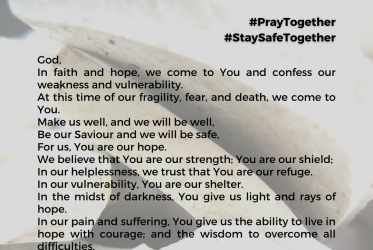Displaying 161 - 180 of 213
Prayer from Chile for strength during pandemic
02 June 2021
A Confession from the Middle East Council of Churches
28 April 2021
Health-Promoting Churches Volume II:
A handbook to accompany churches in establishing and running sustainable health promotion ministries
28 April 2021
WCC answers your questions about vaccines
26 April 2021
A prayer from the Christian Conference of Asia
21 April 2021
Defending the ‘blue soul of life’
08 April 2021
A prayer from the National Council of Churches USA
07 April 2021
A prayer from the Caribbean Conference of Churches
31 March 2021
